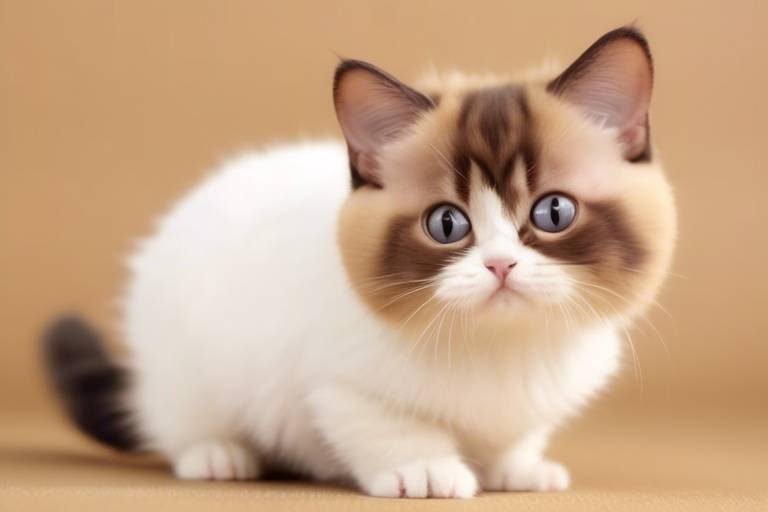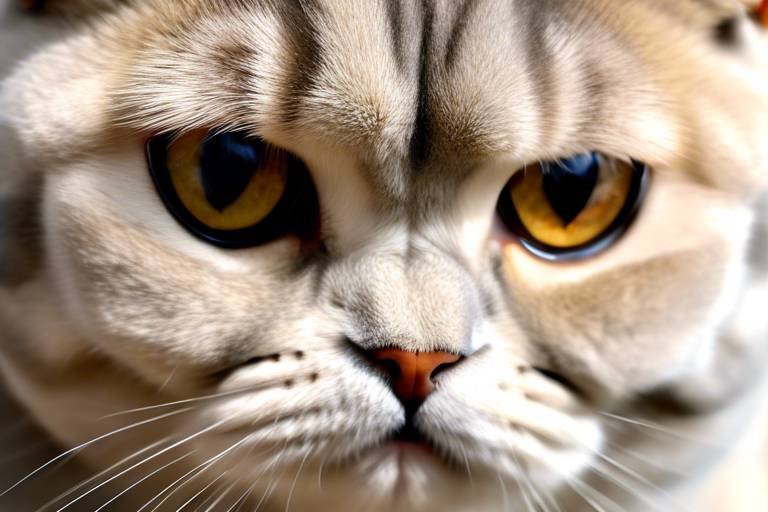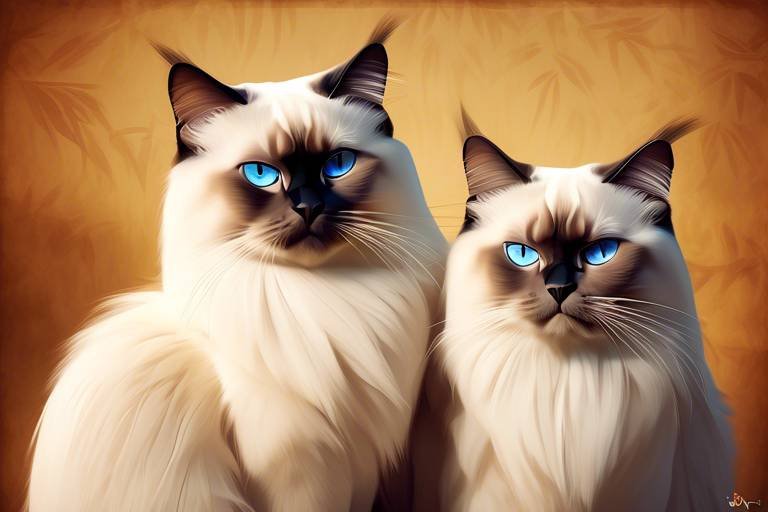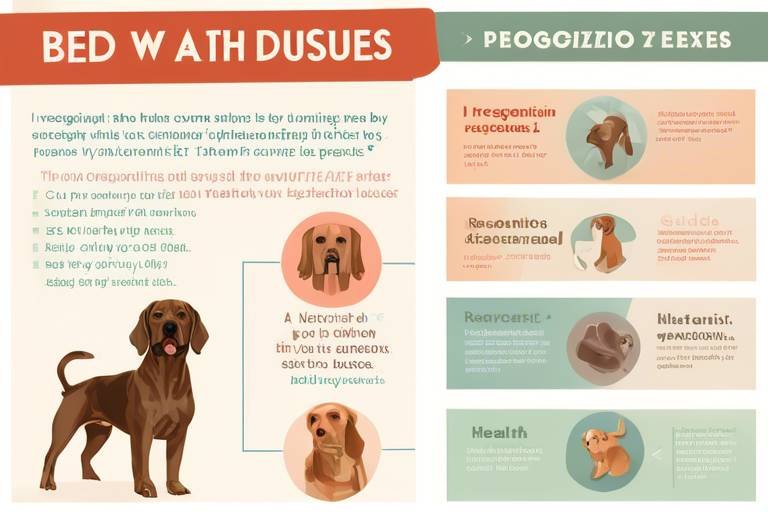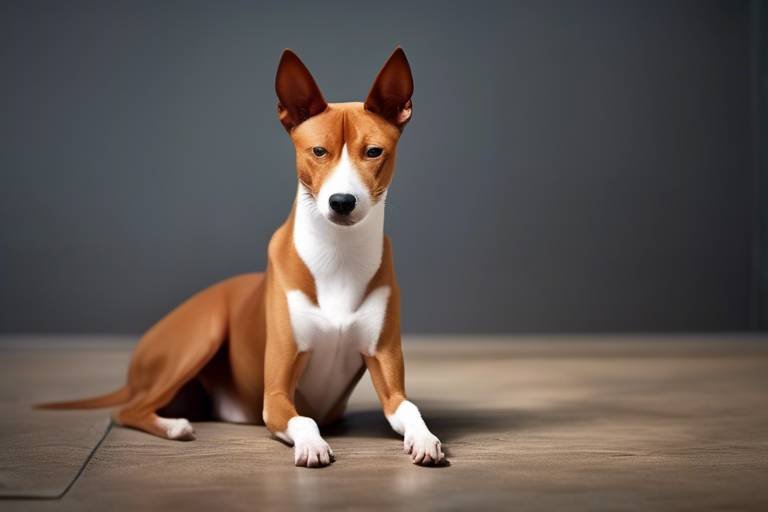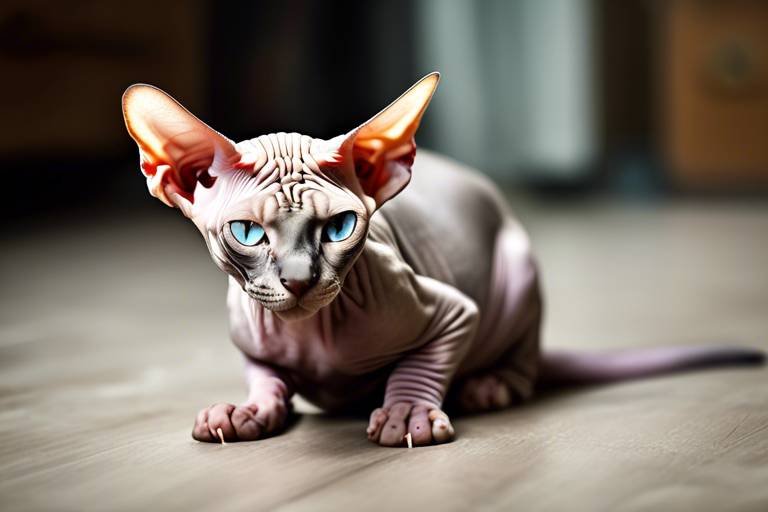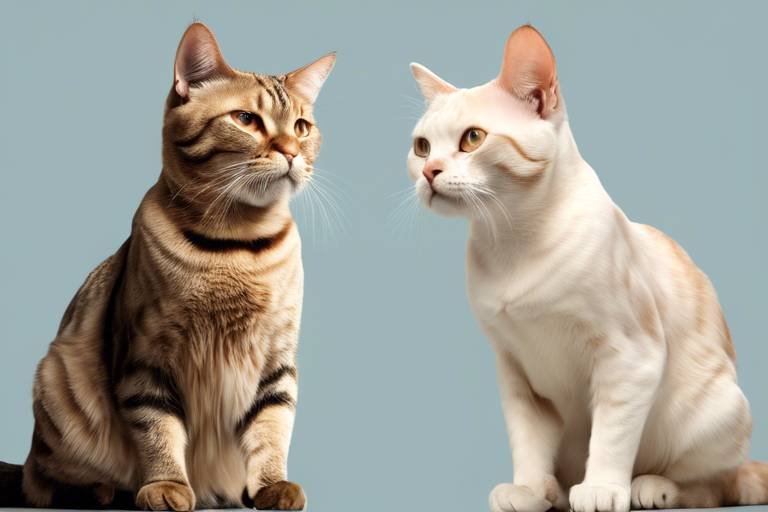Understanding the Unique Nature of the Munchkin Cat
The Munchkin cat is a breed that captures the heart and imagination of cat lovers around the globe. With their distinctive short legs and playful demeanor, these little furballs are anything but ordinary. Imagine a cat that resembles a tiny, furry kangaroo, bounding around your living room with a curious sparkle in their eyes! This article dives into the fascinating characteristics, history, and care requirements of Munchkin cats, revealing what makes them truly unique in the feline world.
The story of the Munchkin cat is as captivating as the breed itself. Originating in the 1980s, these charming cats emerged when a Louisiana schoolteacher discovered a group of small, short-legged cats roaming the streets. Intrigued by their unusual appearance, she began to breed them, giving rise to what we now know as Munchkin cats. Their popularity quickly skyrocketed, and soon they were gracing cat shows and winning the hearts of cat enthusiasts everywhere. It's fascinating to consider that a breed so beloved today started as a serendipitous find on the streets!
Munchkin cats are easily recognizable due to their short legs and compact bodies. These little cuties come in various coat colors and patterns, ranging from solid shades to intricate tabby stripes. Their size can vary, but they typically weigh between 5 to 9 pounds, making them perfect lap companions! The breed's unique leg length is a result of a natural genetic mutation, which gives them their playful, kitten-like appearance throughout their lives. Imagine a cat that never truly grows up, always ready to play and explore!
One of the most endearing aspects of Munchkin cats is their playful and affectionate nature. They possess a zest for life that is contagious, often engaging in antics that leave their human companions in stitches. Munchkins are known for their intelligence and curiosity, making them quick learners and eager participants in family activities. They thrive on social interaction, often forming strong bonds with their human families. Have you ever seen a cat that follows you around like a shadow? That’s a Munchkin for you! They are incredibly social and love being part of the action.
Like all breeds, Munchkin cats have specific health concerns that potential owners should be aware of. While they are generally healthy, they can be prone to certain genetic issues, such as spinal problems due to their unique body structure. Regular veterinary check-ups are essential to monitor their health and catch any potential issues early. Additionally, maintaining a balanced diet and ensuring they have plenty of exercise can help keep them fit and healthy. Prevention is key! By being proactive about their health, you can ensure your Munchkin leads a long, happy life.
Proper care is essential for the well-being of Munchkin cats. Grooming is relatively straightforward, as their coat types can vary from short to medium length. Regular brushing helps reduce shedding and keeps their fur looking fabulous! When it comes to feeding, a high-quality cat food tailored to their age and activity level is crucial. Creating a safe environment is also important; make sure to cat-proof your home, removing any hazards that could pose a risk to your curious little explorer. Remember, a happy cat is a healthy cat!
Training Munchkin cats can be a rewarding experience due to their intelligence and curiosity. They are quick learners and can be taught basic commands and litter box habits with patience and positive reinforcement. Using treats and praise during training sessions can help motivate them. Think of it as a game; the more fun you make it, the more engaged your Munchkin will be! With consistent training, you’ll be amazed at how well they can adapt and learn.
Munchkin cats can coexist harmoniously with other pets, provided they are introduced properly. When bringing a Munchkin into a multi-pet household, it’s essential to allow for gradual introductions. Start by keeping them in separate spaces and gradually allow them to meet under supervision. This approach helps to reduce stress and fosters a peaceful environment. Remember, patience is key! With time, your Munchkin can become best buddies with your other furry friends.
If you’re considering adopting a Munchkin cat, there are a few important things to keep in mind. Look for reputable breeders or rescue organizations that prioritize the health and well-being of their cats. Ask questions about the cat’s background, health records, and temperament. Remember, adopting a pet is a long-term commitment, and being informed is crucial to making the right choice. Are you ready to welcome a playful little Munchkin into your home? It could be the start of a beautiful friendship!
- Are Munchkin cats hypoallergenic? No, Munchkin cats are not hypoallergenic, but individual reactions may vary.
- Do Munchkin cats have any special care requirements? While they don’t have unique care needs, regular veterinary check-ups and a balanced diet are essential.
- Can Munchkin cats jump? Yes, despite their short legs, Munchkin cats can jump and climb, although they may not reach the heights of other breeds.
- What is the average lifespan of a Munchkin cat? Munchkin cats typically live between 12 to 15 years, depending on their overall health and care.
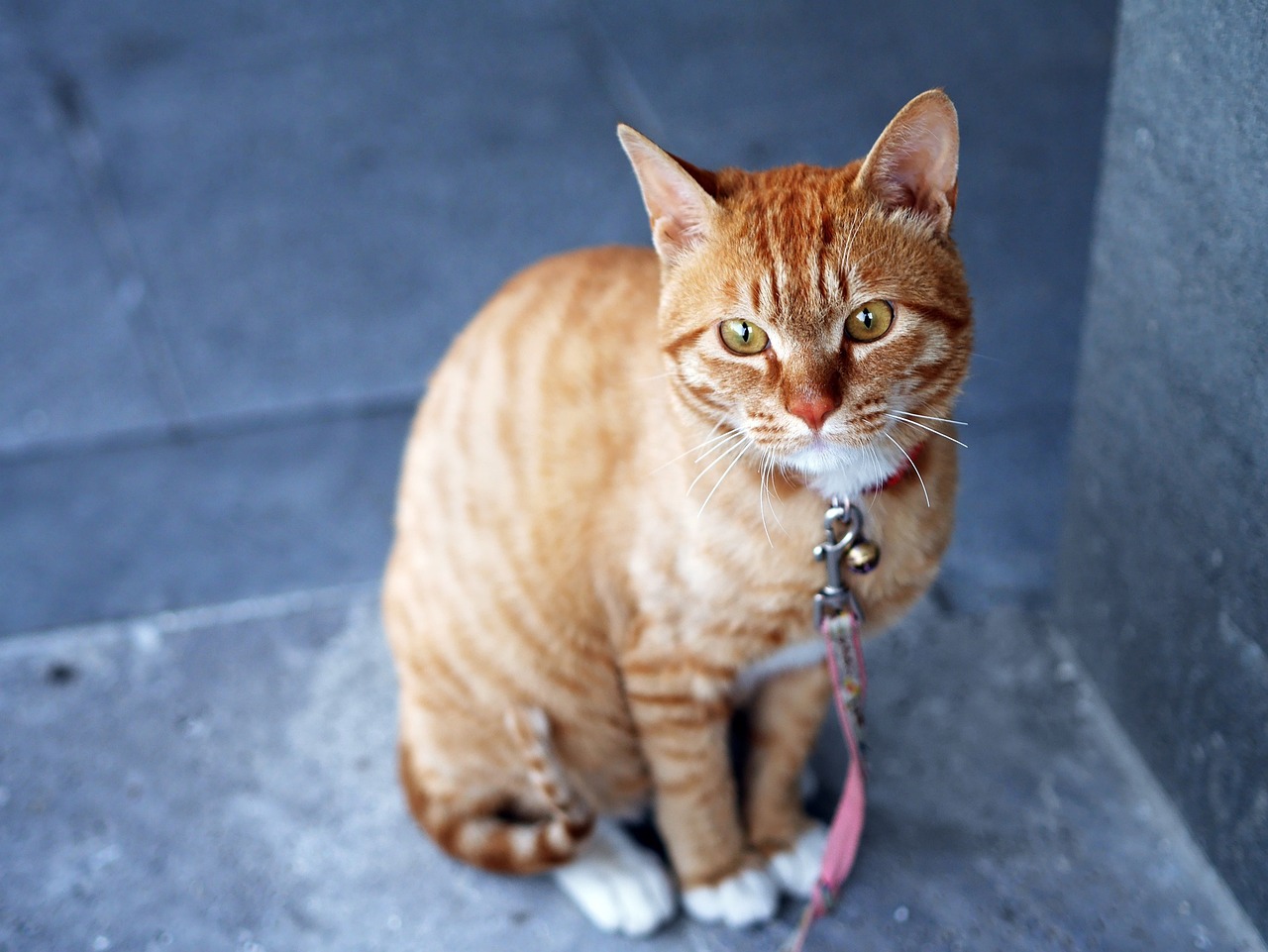
Origins of the Munchkin Cat
The Munchkin cat has a captivating history that dates back to the early 1980s. It all began in Louisiana when a schoolteacher named Sandra Hochenedel discovered a group of small, short-legged cats roaming her neighborhood. These cats were unlike any she had seen before, and their adorable stature immediately piqued her interest. Little did she know, this chance encounter would lead to the birth of a new and beloved breed.
After noticing these unique felines, Sandra began to breed them, focusing on their distinctive traits. She and other enthusiasts quickly recognized that their short legs didn’t hinder their agility or playful nature. In fact, these cats were remarkably energetic, often zipping around in a way that seemed to defy their size. The name “Munchkin” was inspired by the little people from the Wizard of Oz, perfectly encapsulating their charming appearance.
Initially, the Munchkin cats faced skepticism from the cat breeding community. Critics raised concerns about potential health issues associated with their genetic makeup, which is a natural mutation. However, as more breeders began to take interest, the Munchkin cat started to gain acceptance. By the mid-1990s, the breed was recognized by various cat registries, including The International Cat Association (TICA), which helped to solidify their status in the feline world.
Interestingly, the history of short-legged cats isn't exclusive to the Munchkin breed. Similar cats have been documented throughout history, including in Europe and Asia. However, it was the Munchkin that captured the hearts of cat lovers globally. Today, they are celebrated for their playful personalities and affectionate nature, making them a popular choice for families and individuals alike.
The rise of the Munchkin cat also reflects a broader trend in pet ownership, where unique and distinctive breeds are increasingly sought after. As people look for companions that stand out, Munchkins have become a top choice, not just for their looks but also for their engaging and lively demeanor. With their playful antics and loving disposition, it's no wonder that these cats have become a staple in many households.
In summary, the origins of the Munchkin cat are a testament to the joy that can come from embracing natural variations in animal breeds. From their humble beginnings in Louisiana to their current status as a beloved companion animal, Munchkin cats continue to charm everyone they meet. Their unique history is a reminder of how fascinating and diverse the world of cats can be, and why they hold such a special place in our hearts.
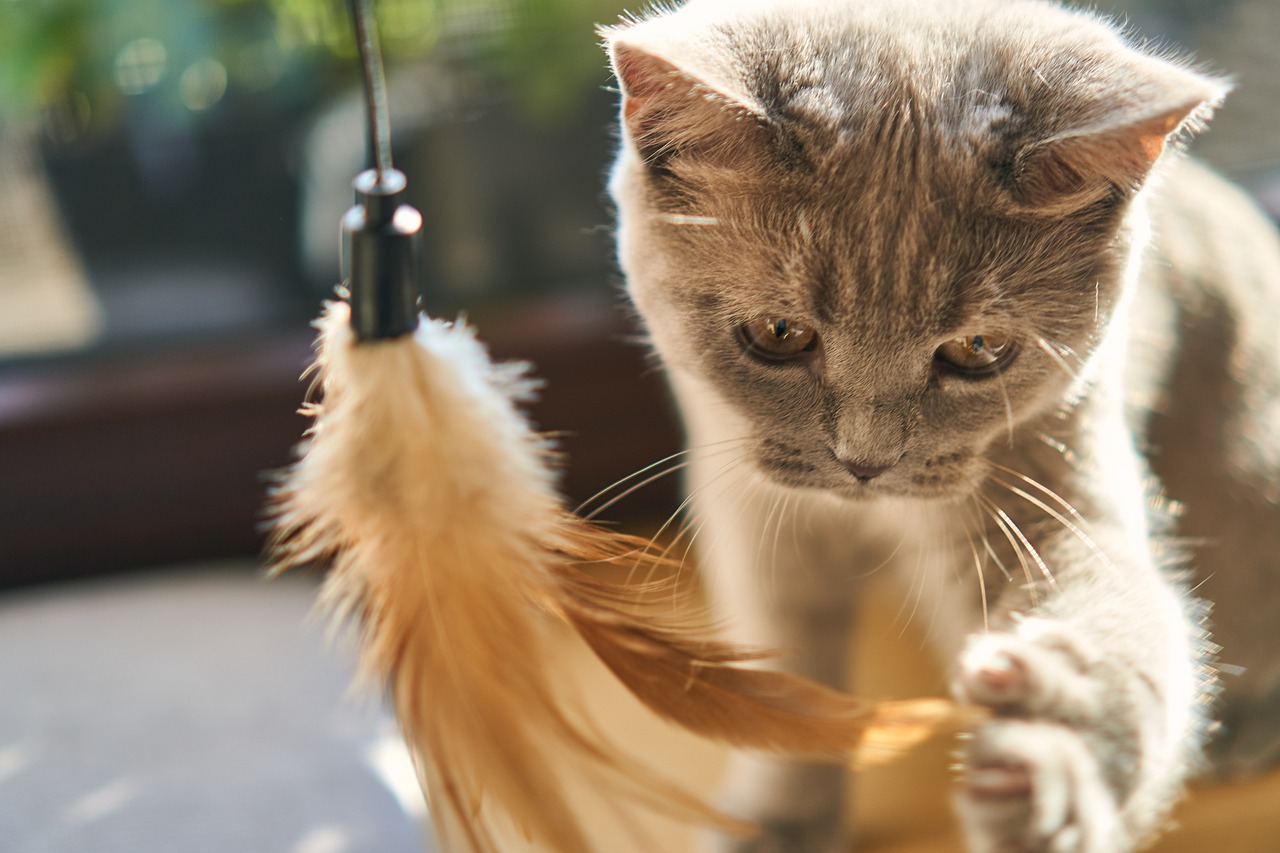
Physical Characteristics
The Munchkin cat is a true marvel of nature, captivating cat lovers with their distinctive short legs and compact bodies. These adorable felines stand out in any crowd, and their appearance can be best described as a delightful blend of playfulness and uniqueness. While their legs may be shorter than the average cat, this does not hinder their agility or playful spirit. In fact, many Munchkin cats are surprisingly quick and can jump surprisingly high for their stature, making them quite the little athletes!
Munchkin cats come in a variety of coat colors and patterns, which adds to their charm. You might find them sporting classic tabby stripes, solid colors, or even unique patterns like tortoiseshell. Their fur can be either short-haired or long-haired, depending on the individual cat, and each type has its own appeal. The short-haired Munchkin typically has a sleek and shiny coat that requires minimal grooming, while the long-haired variety boasts a fluffy, luxurious appearance that may need a bit more attention to keep it looking its best.
In terms of size, Munchkin cats are generally considered medium-sized, weighing between 5 to 9 pounds. Their body structure is compact, with a sturdy build that gives them a robust look. Their legs, while shorter, are proportionate to their bodies, and they have a rounded face with large, expressive eyes that can come in various colors. This combination of features creates an endearing look that is hard to resist!
To illustrate their physical traits, let's take a look at the following table that summarizes some key characteristics of Munchkin cats:
| Characteristic | Description |
|---|---|
| Leg Length | Shorter than average, but proportionate to body |
| Weight | 5 to 9 pounds |
| Coat Length | Short-haired or long-haired |
| Eye Color | Variety of colors |
| Body Type | Compact and sturdy |
Overall, the Munchkin cat's physical characteristics are not just about their short legs; they also encompass their charming personalities and lovely appearances. When you see a Munchkin cat, it's hard not to smile at their playful antics and adorable looks. They truly are a breed that combines uniqueness with affection, making them a beloved choice for many cat enthusiasts.
- Do Munchkin cats have any special health issues related to their short legs? While Munchkin cats are generally healthy, they can be prone to certain genetic conditions. It's essential to choose a reputable breeder who screens for these issues.
- Are Munchkin cats good with children? Yes! Munchkin cats are known for their playful nature, making them great companions for children.
- How much grooming do Munchkin cats require? Short-haired Munchkins require minimal grooming, while long-haired ones will need regular brushing to prevent matting.
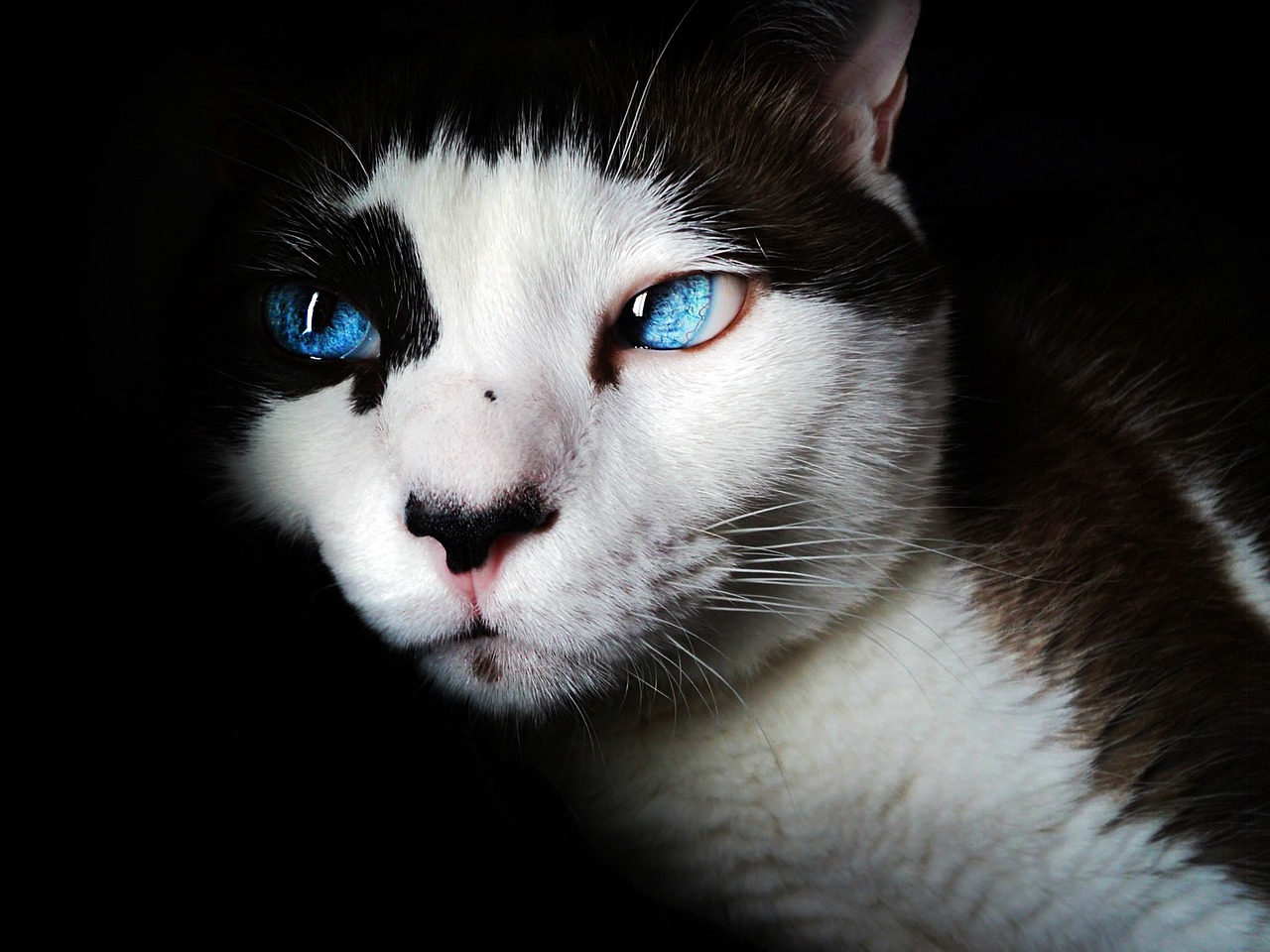
Personality Traits
Munchkin cats are not just a pretty face with their adorable short legs; they come packed with a playful spirit and a personality that can light up any room. Imagine a little ball of energy zooming around your living room, chasing after toys, or even your shoelaces! These cats are known for their curiosity, often exploring every nook and cranny of their environment. They have a knack for turning mundane moments into exciting adventures, making them a delightful addition to any household.
One of the most charming aspects of Munchkin cats is their affectionate nature. They love to cuddle and often seek out their human companions for snuggles. Picture this: after a long day, you plop down on the couch, and your Munchkin cat hops up beside you, purring softly as they nuzzle against your side. It's these intimate moments that create a strong bond between you and your furry friend.
Moreover, Munchkin cats are known to be quite social. They thrive on interaction—not just with humans but also with other pets. This makes them excellent companions for families with kids or other animals. They often engage in playful antics with their fellow pets, showcasing their friendly demeanor. However, it’s important to note that their sociability does not mean they are overly demanding. These cats can entertain themselves, allowing you to carry on with your day while they engage in their own little adventures.
When it comes to their temperament, Munchkin cats are generally affectionate and gentle. They have a knack for reading their owner's moods and often respond accordingly. This sensitivity makes them great companions for those who may need a little extra emotional support. They are not known to be aggressive; in fact, many Munchkin owners report that their cats are quite laid-back and easygoing. This makes them ideal pets for both first-time cat owners and seasoned feline enthusiasts alike.
In terms of intelligence, Munchkin cats are quite clever. They enjoy puzzles and can be trained to perform tricks or follow commands. Their inquisitive nature means they’re always eager to learn new things. For instance, you might find your Munchkin cat figuring out how to open cabinets or play fetch! This intelligence, paired with their playful spirit, means they require mental stimulation to keep them happy. Providing them with toys that challenge their minds can help prevent boredom and destructive behavior.
In conclusion, Munchkin cats are a unique blend of playfulness, affection, and intelligence. Their endearing personalities make them wonderful companions that bring joy and laughter into any home. If you’re considering adding a Munchkin to your family, be prepared for a delightful journey filled with love, laughter, and plenty of playful antics!
- Are Munchkin cats good with children? Yes, Munchkin cats are generally friendly and social, making them great companions for children.
- Do Munchkin cats require special care? While they don’t require special care, regular grooming and attention to their health are essential.
- Can Munchkin cats jump like other cats? Due to their short legs, Munchkin cats may not jump as high as other breeds, but they are quite agile and can still enjoy climbing.
- What is the average lifespan of a Munchkin cat? Munchkin cats typically live between 12 to 15 years, similar to many other cat breeds.
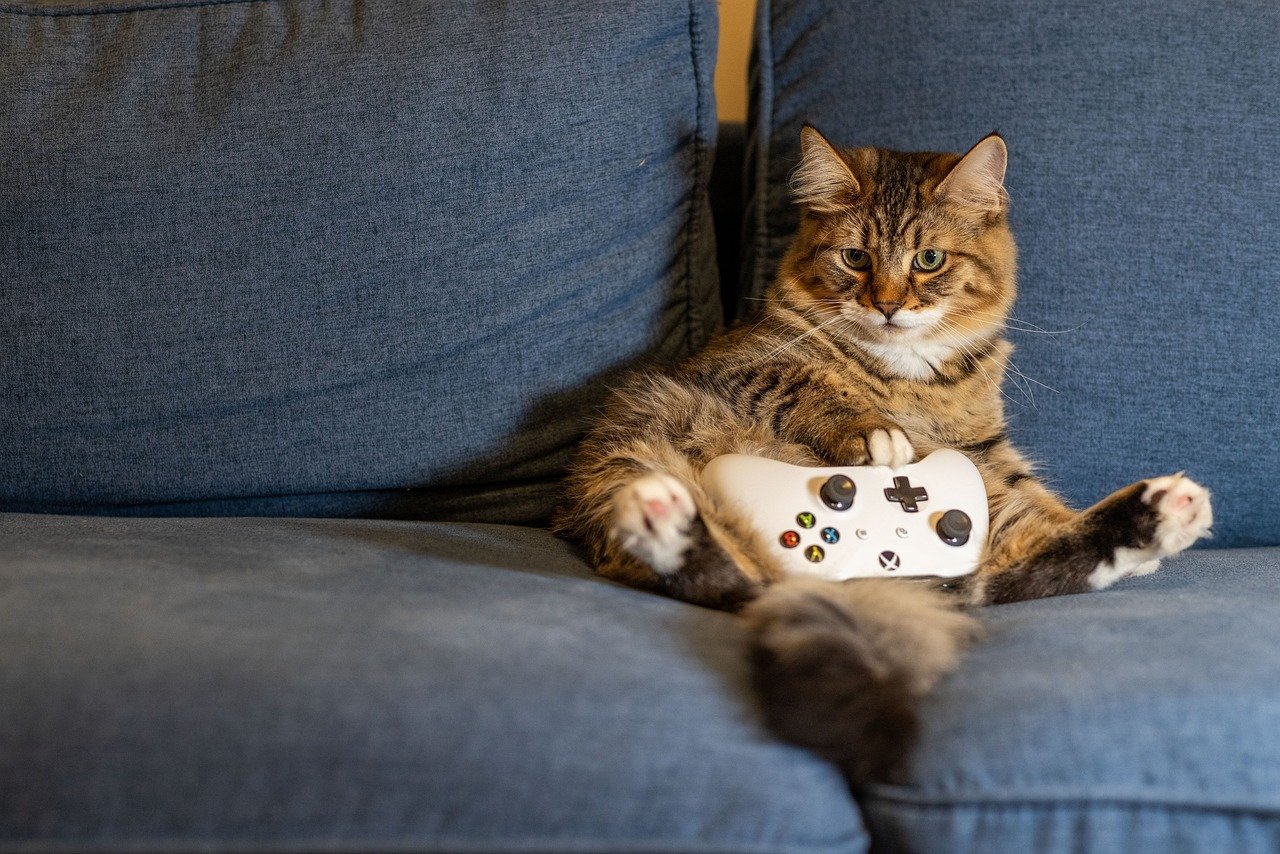
Health Considerations
When it comes to the health of Munchkin cats, there are a few key factors to keep in mind. Just like any other breed, Munchkins can be prone to certain genetic conditions, primarily due to their unique skeletal structure. While their adorable short legs are a defining feature, they can sometimes lead to complications. One of the most notable concerns is Lordosis, a condition where the spine arches excessively, which can cause discomfort or pain. Additionally, kyphosis, which is an abnormal curvature of the spine, can also be a potential issue. It's important to stay vigilant and consult with a veterinarian if you notice any unusual behaviors or signs of distress in your Munchkin.
Aside from skeletal issues, Munchkin cats can be susceptible to common feline health problems such as obesity, dental disease, and heart conditions. Obesity, in particular, is a significant concern because Munchkins are naturally less active due to their shorter legs. Keeping an eye on their diet and ensuring they get enough exercise is crucial. Regular playtime can help keep them active and maintain a healthy weight. A well-balanced diet that includes high-quality cat food is essential, and it's advisable to consult your veterinarian for specific recommendations tailored to your cat's needs.
Furthermore, routine veterinary check-ups are vital for early detection of any health issues. During these visits, your vet can perform necessary vaccinations, dental cleanings, and wellness exams. By being proactive about your Munchkin's health, you can help them live a long, happy life. It’s also beneficial to be aware of the signs that might indicate a health problem, such as changes in appetite, lethargy, or unusual grooming habits. If you notice any of these signs, don’t hesitate to reach out to your veterinarian.
To summarize, Munchkin cats are generally healthy, but they do require special attention to ensure their well-being. Here’s a quick overview of the key health considerations:
| Health Concern | Description | Prevention |
|---|---|---|
| Lordosis | Excessive spinal arching that can cause discomfort. | Regular vet check-ups and monitoring for unusual behavior. |
| Kyphosis | Abnormal curvature of the spine. | Consult a vet for proper care and exercise recommendations. |
| Obesity | Weight gain due to inactivity. | Balanced diet and regular playtime. |
| Dental Disease | Common in many cats, leading to pain and infection. | Regular dental check-ups and cleanings. |
| Heart Conditions | Potential heart issues due to genetics. | Routine vet visits and monitoring for symptoms. |
By keeping these health considerations in mind and providing your Munchkin with a loving and attentive environment, you can help ensure they thrive as a cherished member of your family.
Q: Do Munchkin cats require special care?
A: While Munchkin cats don't require drastically different care than other breeds, their unique physique means that you should monitor their weight and ensure they have a safe environment to play in.
Q: Are Munchkin cats prone to any specific diseases?
A: Yes, Munchkin cats may be more susceptible to certain skeletal conditions and common feline health issues such as obesity and dental disease.
Q: How can I ensure my Munchkin cat stays healthy?
A: Regular vet visits, a balanced diet, and plenty of playtime are key factors in keeping your Munchkin healthy.
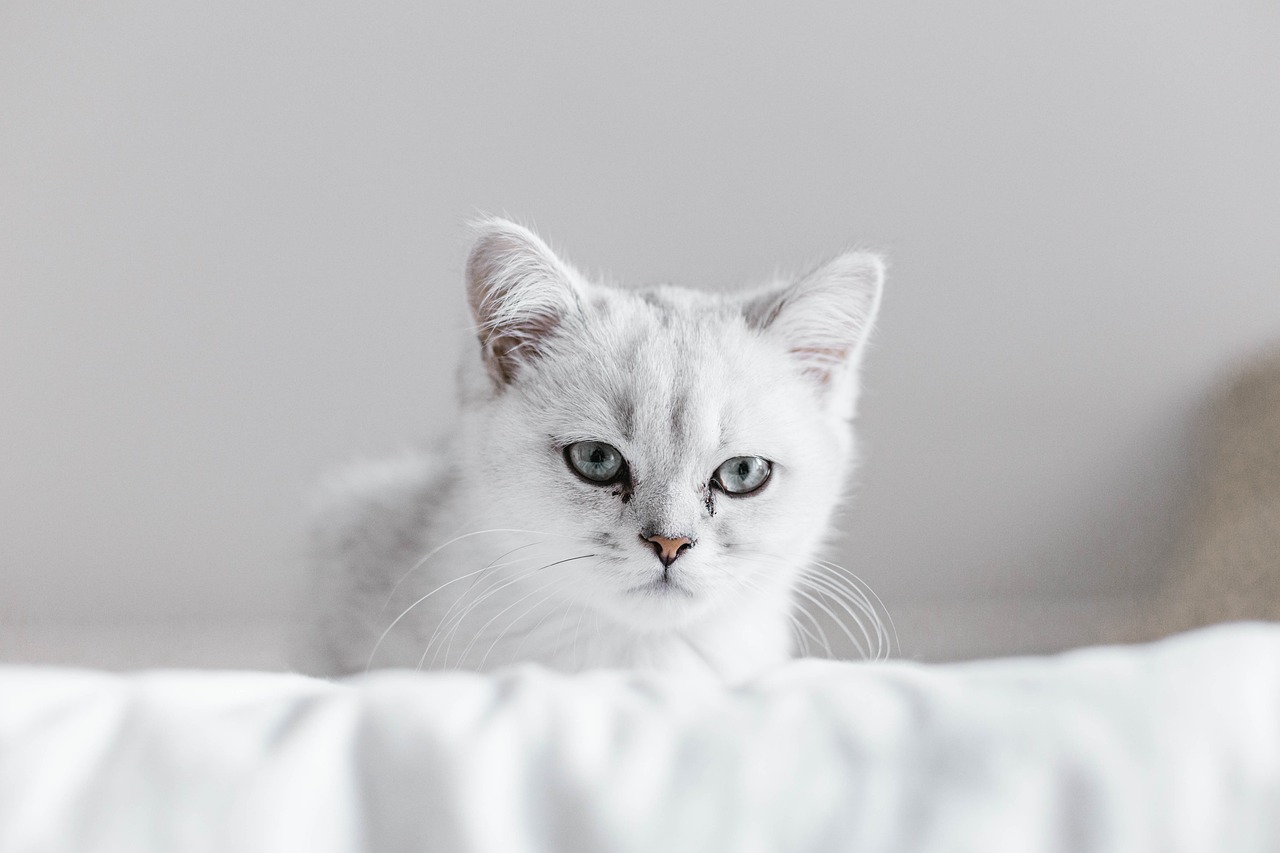
Care and Maintenance
Caring for a Munchkin cat is not just about meeting their basic needs; it's about understanding their unique characteristics and ensuring they thrive in a loving environment. These adorable felines, with their short legs and playful spirits, require a blend of attention, proper nutrition, and regular health checks. First and foremost, nutrition plays a pivotal role in their overall health. A balanced diet rich in high-quality protein is essential for maintaining their energy levels and supporting their playful antics. Look for cat food that lists meat as the first ingredient, and consider consulting your veterinarian for tailored dietary recommendations based on your Munchkin's age and activity level.
Another crucial aspect of Munchkin care is grooming. While Munchkins can have various coat types—from short-haired to long-haired—regular grooming is essential to prevent matting and reduce shedding. For short-haired Munchkins, a weekly brushing should suffice, while long-haired varieties may require more frequent grooming to keep their coats in top shape. Additionally, don't forget about their nails; regular trimming is necessary to prevent overgrowth, which can lead to discomfort or injury.
Creating a safe and stimulating environment is also key to your Munchkin's happiness. These cats are naturally curious and love to explore, so providing them with interactive toys, scratching posts, and climbing structures can keep them entertained and mentally stimulated. Consider setting up a designated play area where they can safely indulge their playful instincts. Moreover, since Munchkins are known for their social nature, spending quality time with them through play and affection is vital. They thrive on interaction, so be prepared to engage in games of chase or fetch.
Regular veterinary check-ups are another essential component of Munchkin care. These visits can help catch any potential health issues early on. Munchkin cats are generally healthy, but they can be prone to certain genetic conditions, such as lordosis and spinal problems due to their unique body structure. Keeping an eye on their weight is also important, as obesity can exacerbate health issues. A well-balanced diet and regular exercise can help maintain a healthy weight.
In summary, caring for a Munchkin cat involves a comprehensive approach that includes proper nutrition, grooming, interactive play, and regular veterinary care. By paying attention to these aspects, you can ensure that your Munchkin not only lives a long and healthy life but also enjoys every moment of it. After all, these delightful little creatures bring so much joy and laughter into our lives; it’s only fitting that we give them the best care possible.
- How often should I groom my Munchkin cat?
It depends on the coat type. Short-haired Munchkins need grooming once a week, while long-haired ones may require grooming several times a week. - What should I feed my Munchkin cat?
Look for high-quality cat food with meat as the first ingredient. Consult your vet for specific dietary needs based on age and activity level. - Are Munchkin cats prone to any health issues?
Yes, they can be prone to certain genetic conditions, so regular vet check-ups are essential. - How can I keep my Munchkin entertained?
Provide interactive toys, scratching posts, and spend quality time engaging in play to keep them mentally stimulated.
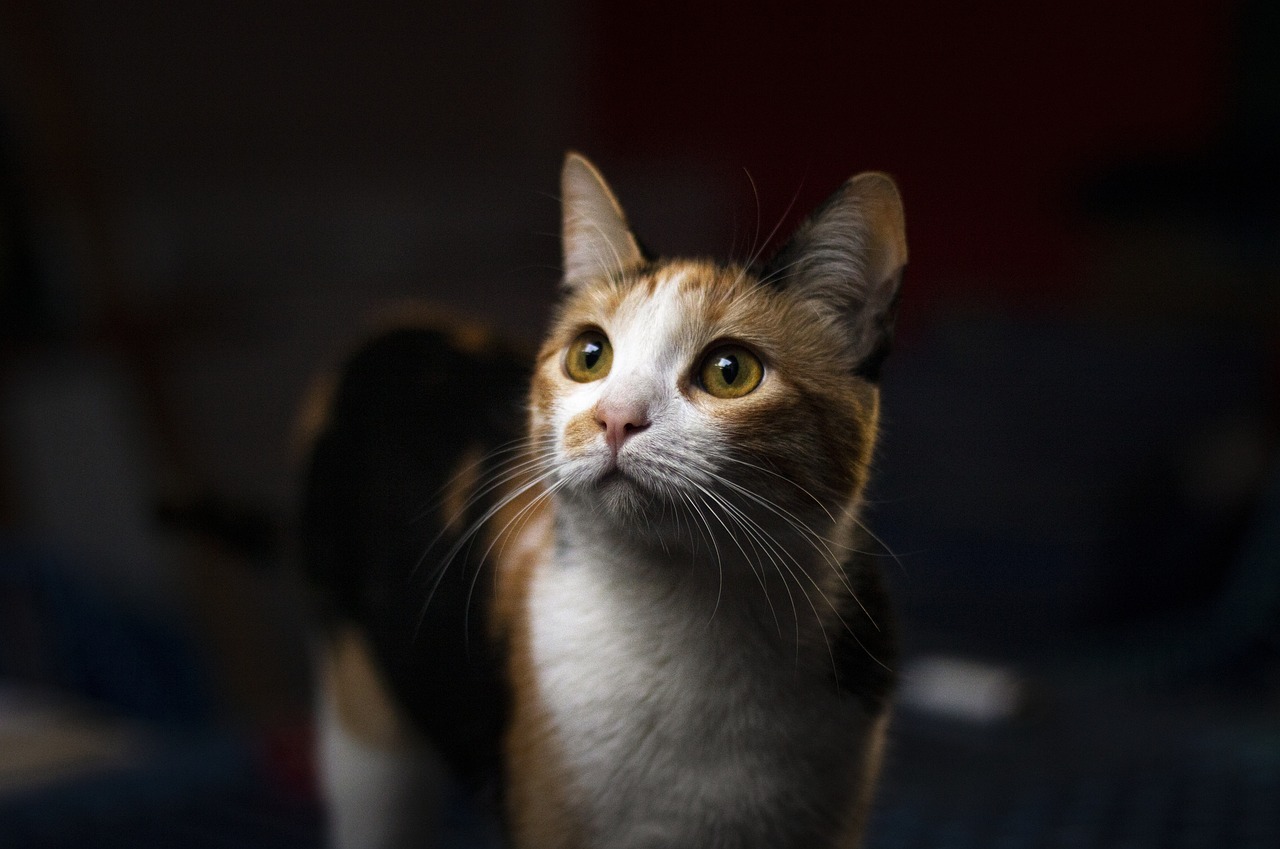
Training Munchkin Cats
Training a Munchkin cat can be one of the most enjoyable experiences for both the pet and the owner. These little furballs are not just adorable; they are also incredibly intelligent and curious. Their playful nature often makes them eager to learn new tricks and commands. However, training requires patience, consistency, and a sprinkle of creativity. Have you ever tried teaching a cat to fetch? With Munchkins, it’s not just possible; it can be downright fun!
When embarking on the training journey, it’s essential to start with the basics. Just like any other cat, Munchkins can be trained to use the litter box, which is often the first step in ensuring a harmonious living environment. Make sure to place the litter box in a quiet, accessible location. If your Munchkin is hesitant, gently place them in the box after meals or naps, as they are more likely to need to go during these times. Positive reinforcement, like treats or affection, can work wonders here. After all, who doesn’t love a little praise?
Moving beyond litter training, you can introduce your Munchkin to simple commands such as “sit,” “stay,” or even “high five.” Start with one command at a time and keep the training sessions short—around 5 to 10 minutes. Munchkins have a short attention span, so frequent breaks are crucial. Use a clicker or a specific word to mark the desired behavior, followed by a treat. This method taps into their natural instincts and makes learning feel more like a game than a chore.
Another fun aspect of training is teaching your Munchkin to play fetch. You might be surprised at how quickly they pick it up! Start by tossing a small toy a short distance and encourage them to bring it back to you. Use enthusiastic praise when they do, and soon enough, you’ll have a tiny feline retriever at your side. This not only provides exercise but also strengthens the bond between you and your pet.
Socialization is also a critical part of training. Munchkin cats are known for their friendly demeanor, but introducing them to new environments and people is essential for their development. Take your Munchkin on short trips around the house or even in a carrier for a drive. This exposure helps them become well-adjusted and reduces anxiety in new situations. Remember, the world can be a big, scary place for a little cat, so be their guide!
While training, it’s important to remember that every Munchkin is unique. Some may take to training like a duck to water, while others might require a bit more coaxing. Be patient and adaptable; if something isn’t working, don’t hesitate to switch up your approach. After all, training should be a positive experience for both you and your furry friend. If you find yourself stuck or struggling, consider consulting with a professional trainer who has experience with cats. They can provide tailored advice and strategies to suit your Munchkin's personality.
In conclusion, training your Munchkin cat is not only beneficial for their behavior but also for your relationship. With a little time and effort, you’ll find that your Munchkin can learn a variety of commands and tricks, all while having a blast. So grab those treats, get your clicker ready, and prepare for some fun-filled training sessions!
- How long does it take to train a Munchkin cat? Training duration can vary, but consistency and patience are key. Most commands can take a few weeks to learn.
- Can Munchkin cats learn tricks like dogs? Absolutely! Munchkin cats are quite trainable and can learn a variety of tricks, especially if motivated by treats.
- What’s the best way to motivate my Munchkin during training? Use their favorite treats, toys, and plenty of praise to keep them engaged and excited about learning.
- Is it necessary to train my Munchkin cat? While it’s not mandatory, training can improve behavior and strengthen your bond with your pet.
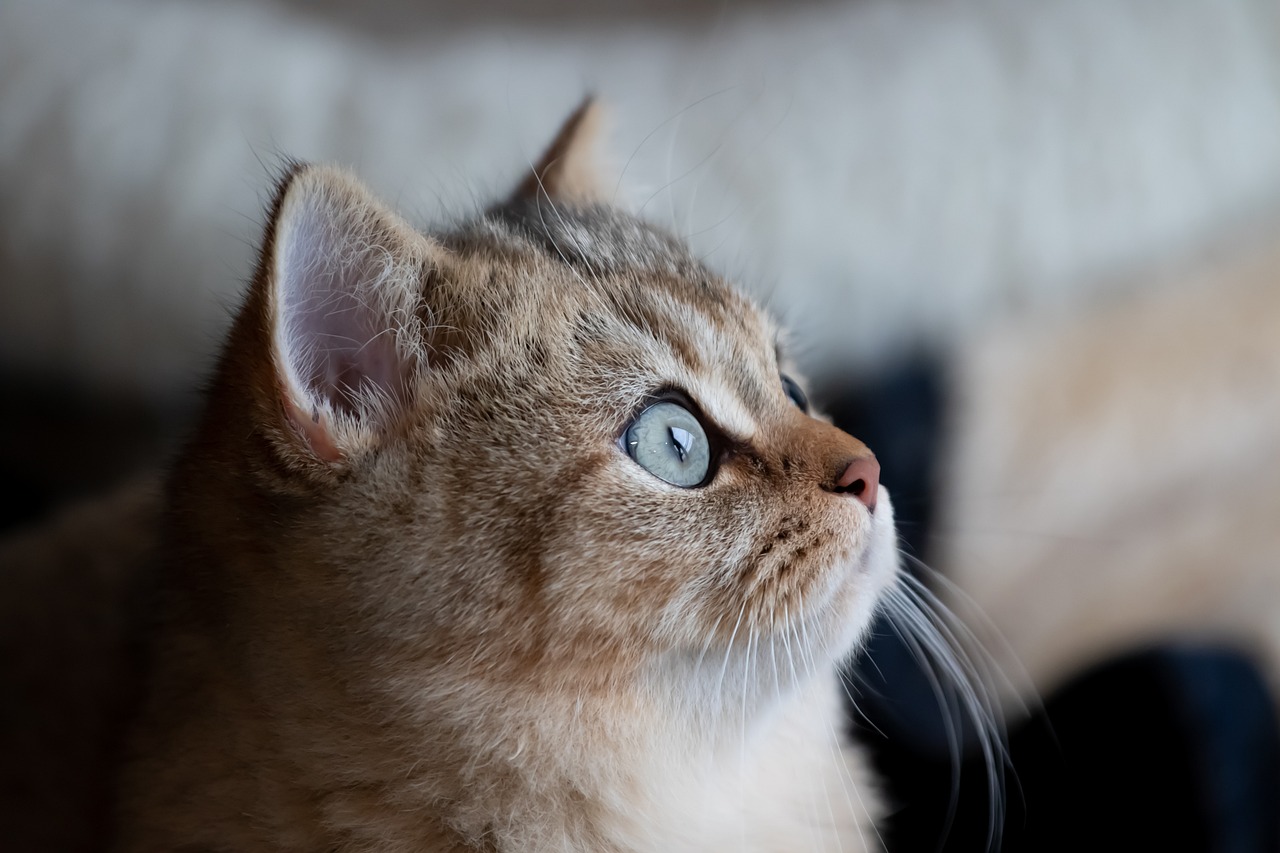
Socialization with Other Pets
When it comes to socializing Munchkin cats with other pets, the process can be both exciting and rewarding. These little furballs are known for their playful nature and adaptability, which can make them great companions not just for humans but also for other animals. However, proper introductions and gradual acclimatization are key to ensuring a peaceful coexistence. Just like humans, pets have their own personalities and quirks, so it’s essential to approach this process with patience and understanding.
One of the first steps in socializing a Munchkin cat with other pets is to create a safe and neutral environment. This is crucial because it helps to reduce territorial behavior. Start by allowing your Munchkin to explore the home without the presence of other pets. This way, they can become familiar with their surroundings and feel more secure. Once they seem comfortable, you can begin the introductions.
During the introduction phase, it’s beneficial to keep the initial meetings short and supervised. You might want to use a baby gate or a separate room to allow the Munchkin and the other pet to see and smell each other without direct contact. This can help to alleviate any anxiety. Gradually, as they become more accustomed to each other, you can allow for supervised interactions. Remember, patience is key; some pets may take longer to adjust than others.
Here are some tips to consider during the socialization process:
- Positive Reinforcement: Use treats and praise to reward both your Munchkin and the other pet for calm behavior during introductions.
- Monitor Body Language: Keep an eye on both pets’ body language. Signs of aggression or fear should be taken seriously, and you may need to separate them if necessary.
- Gradual Increase in Interaction: As they become more comfortable, gradually increase the time they spend together. This helps to build trust.
It’s also important to consider the personality of the other pets involved. Munchkin cats are generally friendly, but they can be overwhelmed by overly aggressive or hyperactive pets. If you have a dog, for instance, it's crucial to ensure that the dog is calm and well-trained. Some breeds are more likely to accept a new cat into their home, while others may view them as prey. Always do your research and choose companions wisely.
In multi-pet households, establishing a routine can also aid in socialization. Feeding, playtime, and cuddle sessions should be structured so that all pets feel included and valued. This not only fosters a sense of community but also helps to mitigate any jealousy or rivalry that may arise. Just like in a family, every member should feel loved and secure.
Lastly, if you find that your Munchkin cat is struggling to adapt, consider consulting with a veterinarian or a pet behaviorist. They can provide tailored advice and strategies to help your pets get along. Remember, the goal is to create a harmonious home where all pets can thrive together.
Q: Can Munchkin cats get along with dogs?
A: Yes, Munchkin cats can get along with dogs, especially if the dog is well-trained and calm. Always supervise their interactions and introduce them gradually.
Q: How long does it take for pets to get used to each other?
A: The time it takes for pets to acclimate to one another can vary widely. Some may bond within days, while others might take weeks or even months. Patience is crucial.
Q: What should I do if my Munchkin cat shows aggression towards another pet?
A: If your Munchkin cat displays aggression, it’s important to separate them immediately and allow them to calm down. Gradually reintroduce them using the tips mentioned earlier.
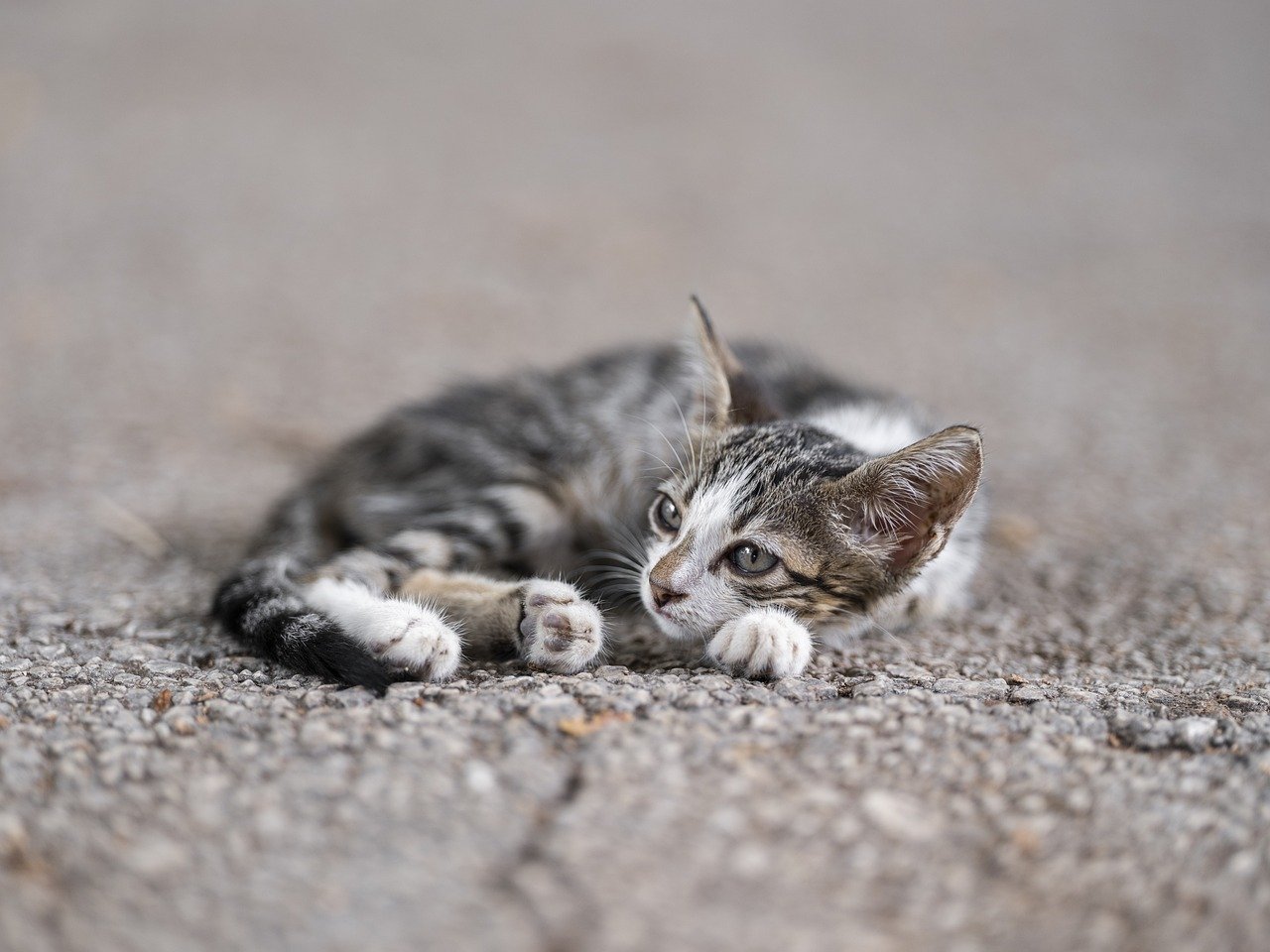
Adopting a Munchkin Cat
Adopting a Munchkin cat can be one of the most rewarding decisions you'll ever make as a pet owner. These adorable felines not only bring joy with their playful antics but also charm everyone with their unique appearance. However, before you rush off to bring one home, it’s essential to consider a few important factors to ensure that both you and your new furry friend are a perfect match. So, what should you keep in mind when thinking about adopting a Munchkin?
First, it’s crucial to find a reputable breeder or a trustworthy rescue organization. Munchkin cats, due to their distinctive genetic traits, can sometimes be the subject of unethical breeding practices. To avoid any health issues down the road, look for breeders who prioritize the well-being of their cats. Ask questions about their breeding practices, health screenings, and if you can meet the kitten's parents. A responsible breeder will be more than happy to provide you with this information.
When adopting, consider the age of the Munchkin cat. Kittens are undeniably cute, but they require a lot of time and attention to train and socialize. Adult Munchkins, on the other hand, may already have established personalities and behaviors, making it easier for you to gauge if they fit your lifestyle. Plus, adopting an adult cat can help reduce the number of homeless animals and give them a loving home.
Another aspect to look into is the health history of the cat. Munchkin cats can be prone to certain genetic conditions, such as lordosis or pectus excavatum. Ensuring that your cat has been screened for these conditions can save you from potential heartache and unexpected veterinary bills. Always ask for health records and any relevant genetic testing results when adopting.
Also, consider the environment you can offer your new pet. Munchkin cats are known for their playful and curious nature, so they thrive in a stimulating environment. Make sure your home is safe and welcoming, with plenty of toys and vertical spaces like cat trees or shelves where they can explore and play. Remember, a happy Munchkin is an active Munchkin!
Finally, be prepared for the responsibilities that come with pet ownership. Munchkins, like all cats, require regular veterinary check-ups, a balanced diet, and plenty of love and attention. They are social animals that enjoy interacting with their human companions, so don’t forget to set aside time for play and bonding. By being ready for these commitments, you’ll ensure a fulfilling relationship with your new furry friend.
In conclusion, adopting a Munchkin cat is an exciting journey filled with love and companionship. By doing your research and being prepared, you can provide a wonderful home for a cat that will undoubtedly fill your life with joy and laughter. So, are you ready to welcome a Munchkin into your heart and home?
- What is the average lifespan of a Munchkin cat? Munchkin cats typically live between 12 to 15 years, similar to other domestic cats.
- Do Munchkin cats have any special dietary needs? No, they generally require the same balanced diet as other cats, but it's always good to consult with your vet.
- Are Munchkin cats good with children? Yes, they are known for their playful and affectionate nature, making them great companions for kids.
Frequently Asked Questions
- What are Munchkin cats known for?
Munchkin cats are most famous for their short legs, which give them a unique and adorable appearance. They are playful, affectionate, and have a lively personality that makes them a favorite among cat lovers.
- How did the Munchkin cat breed originate?
The Munchkin cat breed originated in the 1980s when a teacher in Louisiana discovered a group of small cats with short legs. These cats quickly gained popularity, and breeders began to develop the breed, leading to the Munchkin cats we know today.
- Are Munchkin cats healthy?
While Munchkin cats are generally healthy, they can be prone to certain genetic issues, like any breed. Regular vet check-ups, a balanced diet, and proper care can help ensure they lead long, healthy lives.
- How do I care for a Munchkin cat?
Caring for a Munchkin cat includes providing a nutritious diet, regular grooming, and ensuring they have a safe environment to play in. They also thrive on social interaction, so spending quality time with them is essential.
- Can Munchkin cats be trained?
Yes! Munchkin cats are intelligent and can be trained using positive reinforcement techniques. Teaching them basic commands and litter box habits can be both fun and rewarding.
- How do Munchkin cats get along with other pets?
Munchkin cats are typically social and can coexist peacefully with other pets. Proper introductions and gradual acclimatization can help foster a harmonious multi-pet household.
- What should I consider when adopting a Munchkin cat?
When adopting a Munchkin cat, look for reputable breeders or rescue organizations. It's also important to consider your lifestyle and the responsibilities of pet ownership, including time, finances, and commitment.

